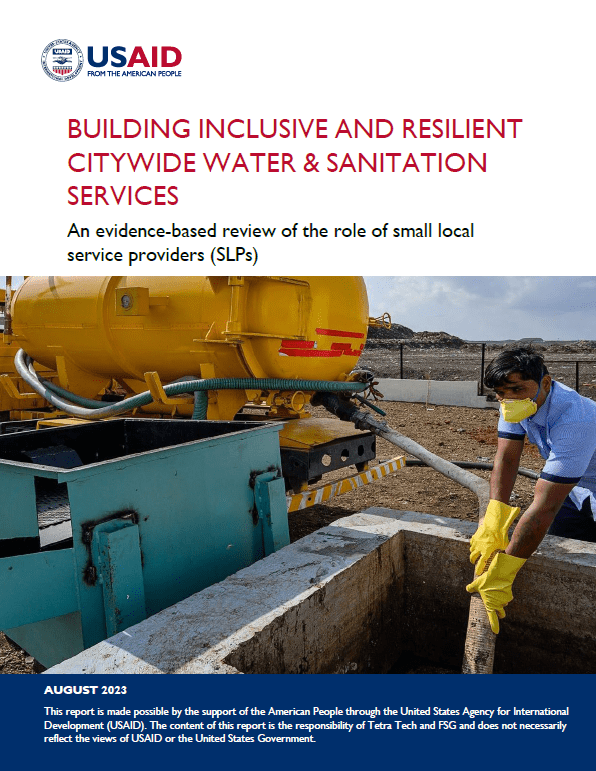Across low-and middle-income countries (LMICs), the public institutions mandated to provide water and sanitation services in cities have limited financial capacity and/or capabilities to provide citywide coverage. The population in unregulated areas, often informal, peri-urban, or low-income settlements, are
covered, informally, by small local providers (SLPs), who are often not officially recognized or regulated.
This study is based on literature review and case studies to understand approaches for cities to formally leverage SLPs for delivering drinking water and fecal sludge management (FSM) services to households in WASH (URBAN WASH) LMIC contexts. Across cases from four cities/regions in Sub-Saharan Africa and three cities in Asia, the study considered the effects of these approaches on equitable access and adaptability of urban service delivery systems to future shocks. This product was developed by USAID’s Urban Resilience by Building Partnerships Global and Applying New Evidence in WASH (URBAN WASH) Activity.
Top takeaways:
- SLPs fill critical service gaps in urban and peri-urban areas where public institutions lack capacity, serving more than 50% of populations without piped water or sewered connections in LMICs, particularly in informal settlements and for marginalized groups.
- Cities can formally integrate SLPs through either facilitating their participation (enabling functions like licensing) or actively managing them through contracts or delegated management models, as demonstrated in case studies across Sub-Saharan Africa and Asia.
- Successful transitions require political directives, economic incentives, social conditions, and implementing actions across three critical levers: managing engagement with players, establishing rules, and creating supporting infrastructure.
- Integrating SLPs improves service coverage, reliability, and affordability in previously unserved areas, and customers often prefer SLP services to those from public institutions.
Download the full report here >
Download the learning brief here >


